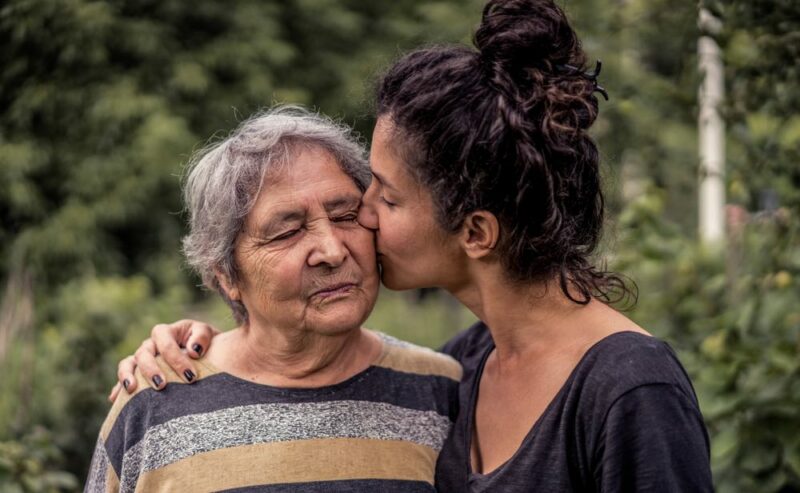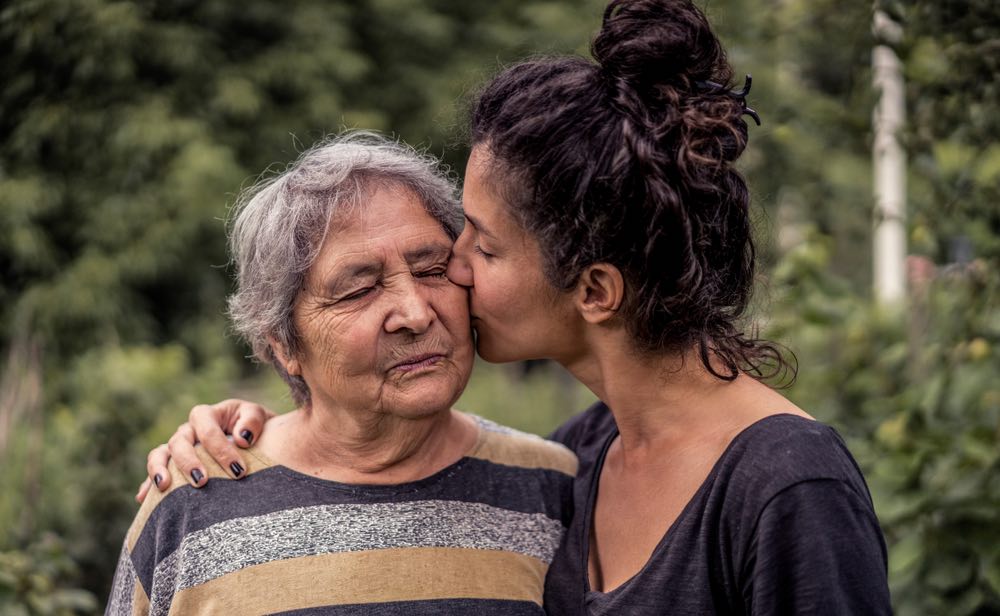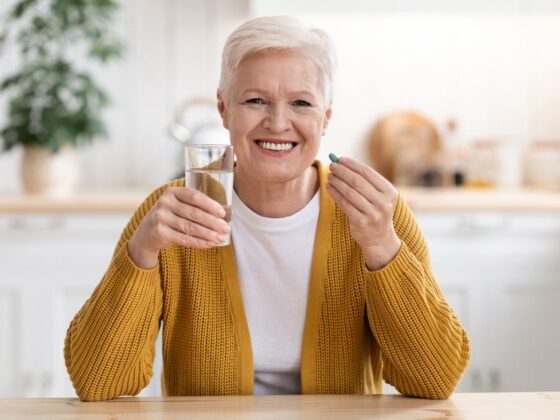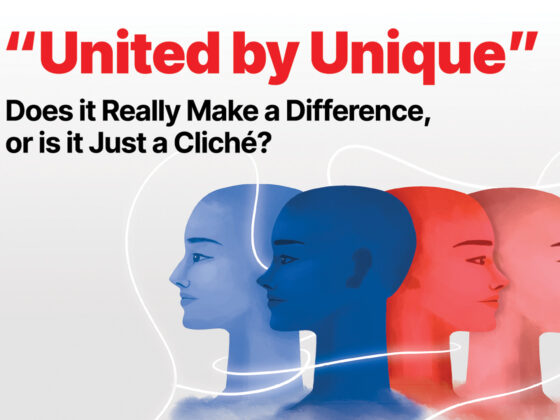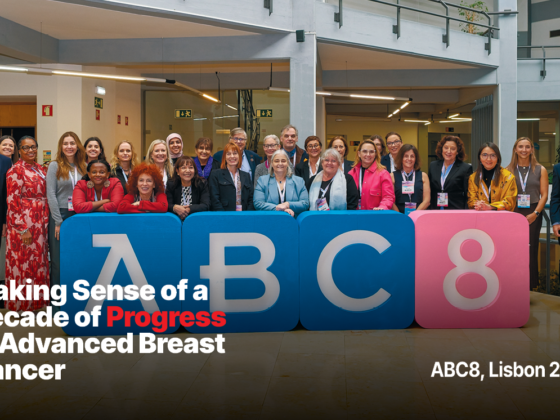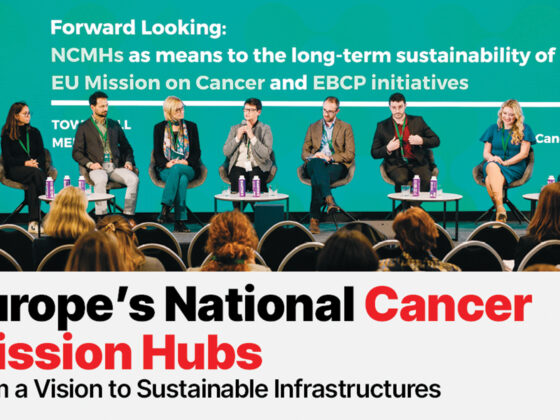Researchers and public policies have historically overlooked the challenges of informal caregiving for cancer patients in Latin America. Now, public health experts are working to profile this neglected group, evaluate their quality of life and put an economic value on their work. How much is caregivers’ time actually worth?
It’s an important question in Latin America, where relatives – mainly women – care for the sick without financial support from health and government institutions, and caregiving is seen as a personal responsibility rather than a job.
Now a study by researchers in Argentina has found that informal caregivers for people with cancer in Latin America annually spend between around 512 and 1,825 hours focused on their patients – that’s up to 20% of their time, day and night. The demands on them vary according to the cancer type. Patients with stomach or pancreatic cancer, for example, require more time and attention from carers than patients with leukaemia.
The researchers quantified carers’ contribution to national economies, focusing on the eight countries that make up 80% of the region’s population and lead its economic income: Argentina, Brazil, Chile, Colombia, Costa Rica, Ecuador, Mexico, and Peru.
In Brazil, that contribution amounted to almost 1.4% of the country’s entire gross domestic product (GDP). Carers in Chile and Ecuador accounted for the next highest contribution to national economies, with the contribution levels in Mexico ranking the least, at 0.26% of GDP.
“It’s almost a full-time job,” said lead author Natalia Espinola, an economist at the Institute for Clinical Effectiveness and Health Policy in Buenos Aires, Argentina. But, as she adds, most people don’t see it like that. “Generally, caring for a sick person, a sick relative, is something that has become a natural part of daily life. Especially for women.”
Enrique Soto, a geriatric oncologist in the Department of Geriatrics at the Salvador Zubirán National Institute of Medical Science and Nutrition, in Mexico City, has a similar take on the issue. “There is nothing informal about caregiving. So there is no reason to say that it is informal care. Rather, it is unpaid care,” he says.
Finding the value of caregiving work can give visibility to caregivers’ work, raise awareness of the importance of them getting payment, and generate statistics to improve public policies, Espinola says. It can also help reduce the gender gaps fostered by culture.
“The vast majority of the burden of unpaid care falls on women. It is a major source of inequality, and it is a gender role that has been in place for decades,” says Soto.
In her research, Espinola found that approximately 90% of women in Latin America participate in unpaid care and housework tasks, and that they spend twice as much time on these tasks as men do. Women do this alongside other activities like unpaid household chores, paid work activities and leisure time.
As cancer rates and the number of people in the region over 65 increase, the caregiving gender gap may grow to such an extent that “the opportunities that women have gained up to now may be cut short,” according to Espinola.
Sisters Nashelly Negrete, 42, and Gabriela Negrete, 47, know what it’s like. They began taking care of their aunt nine years ago, with economic support from their father. The aunt had been diagnosed with breast cancer in 2009, and her chemotherapy treatment impacted her memory. In 2014, when she was 79, she went into remission, but she had also begun experiencing symptoms of dementia. Nashelly and Gabriela began to look after her.
Then, in 2020, their father received a diagnosis of colon cancer at age 84. “My dad is self-sufficient, but it’s like an extra job to take care of him,” Nashelly says.
“The caregiving gender gap may grow to such an extent that the opportunities that women have gained up to now may be cut short”
The two sisters share caregiving responsibilities, with the greatest weight falling on Gabriela, who lives in the same house as her father and aunt. Although they have a brother, he’s never present to support them.
They have seen this pattern with other patients at the hospital where their father gets treatment. “You spend hours seated, and at least 90% of the people in the waiting room are women who accompany the father, mother or anyone who requires the service. There are almost no men,” Gabriela says.
Both agree that having economic assistance for caregivers would help with the burden that many families face.
Recognising unpaid carers
Latin America is still in the early stages of recognising informal caregiving, and the economic burden it places on people who often can ill-afford the loss of income involved in giving up their paid work to take on the role of carer. “A person who has a low socioeconomic level and has to take on this task and leave the little work they have, that can also generate problems within the society,” Espinola says.
Taking account of the value of this work when estimating the total economic burden of cancer and other diseases, she says, will lead to more targeted policies that consider the impacts of the disease on society – not just the healthcare system.
In the long run, it will also save governments money, by preventing caregivers themselves from becoming ill, argues Soto. “Caregivers have depression, they have anxiety, they have sleep problems. Many caregivers even neglect their own health.
Most of these programmes focus only on the patients and overlook the needs of caregivers
Currently there are isolated programmes in the region focused on off-setting the burden of caregivers. A project in Uruguay, for example, offers homecare assistants up to 80 hours per month for people over 80 who need it, among other services. In Chile, the “Cuida Chile” programme offers a similar service for people in low-income households. Argentina has the PAMI programme, which covers health and social services, including long-term care.
Yet most of these programmes focus only on the patients and overlook the needs of caregivers. They also address only the direct costs of the disease and tend to privilege men over women.
One programme that does support caregivers is “Te Acompañamos,” launched in Mexico in 2017 by Soto’s team. It has oncologists, psychologists, pain and rehabilitation experts and nutritionists accompanying cancer patients and their loved ones through the disease.
The Negrete sisters are among the many caregivers who are receiving support and advice through this programme, which they find helpful even though, as they emphasise, they don’t see their role taking care of their aunt and father as a burden, but as a chance to spend more time with the people they love.
This is a pattern that Soto has seen in his own research and work with cancer patients’ caregivers. “Caregiving is highly rewarding. Most people who are caregivers describe the caregiving experience as something that made them feel valuable, that made them feel happy, that made them feel they were giving back to a person they loved,” he says. “They just need to be able to have time for self-care.”

